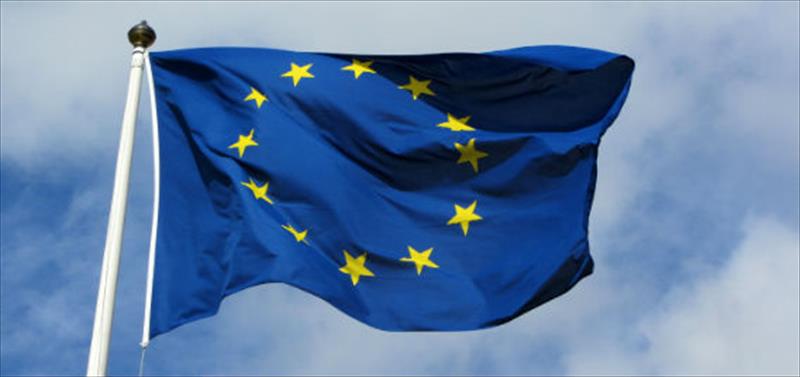The Stabilisation and Association Agreement (SAA) is a contractual relationship between the European Union (EU) and its Member States and Bosnia and Herzegovina (BiH). It is a key element of the Stabilisation and Association Process, which is the framework for the European Union’s policy towards the Western Balkans region. In 2003, the EU confirmed that the whole Western Balkans region had a clear perspective of EU membership if all conditions are met.
The SAA enables BiH and the EU to work even more closely together and build a deeper relationship on all fronts – leading to BiH’s full integration into the EU. It focuses on respect for key democratic principles and the core elements which are at the heart of the EU single market. Thus having the SAA fully in force is the first real step in BiH’s process of European integration.
Read about the conditions for membership of the EU and related processes on the European Commission’s webpage about enlargement negotiations.
An Interim Agreement has been in place between BiH and the EU since 1 July 2008. However the scope of obligations on both sides will significantly increase with the full entry into force of the SAA: while the Interim Agreement was mainly focused on enabling free flow of goods, the SAA will require efficient transposition and implementation of the whole body of EU law, that has been created over the past six decades. A lot of hard work lies ahead of BiH, in close partnership with the EU.
See the full text of the SAA here
The SAA webpage of the BiH Directorate for European Integration can be seen here
While the main objective of the SAA is to prepare BiH for eventual EU membership, ongoing implementation of the Agreement brings about a number of direct benefits for Bosnia and Herzegovina. Having an SAA in place means, for example, that BiH is seen as a credible international partner of the EU and its Member States – which can increase the confidence of investors, domestic and international.
Institutional arrangements
Having an SAA in place means the establishment of bodies through which dialogue between the EU and BiH about the transposition and implementation of EU law takes place.
At the highest level, a Stabilisation and Association Council and a Stabilisation and Association Parliamentary Committee are established. At the technical level a Stabilisation and Association Committee and sectoral Sub-committees are established. These bodies support the more intensive dialogue that takes place between the EU and BiH.
The benefits of an SAA in more detail
Having an SAA in place means:
1. The EU market is open for BiH products free of duties (except for wine, baby-beef, sugar and fish, which are subject to quotas) and without any obstacles, under the condition that these products are in line with the EU standards. This enables producers from BiH to offer their products to 500 million consumers throughout the EU.
2. More stable, transparent and predictable market and investment rules should lead to increased foreign direct investment which in turn creates new employment.
3. BiH can become part of EU initiatives to meet goals of smart, sustainable and inclusive growth (“Europe 2020”), including similar regional initiatives (“SEE 2020”), delivering high levels of employment, productivity and social cohesion.
4. Increased opportunities for people from BiH to study in any EU country under the same conditions in terms of recognition of qualifications and education fees: people can benefit from the EU’s most popular programmes to study and teach in the EU (like ERASMUS).
5. Better opportunities for doing business in BiH, more business-friendly environment due to transposition of EU standards and norms, removal of unnecessary administrative and other obstacles.
6. Increased investment in research and development, providing adequate support to academicians and innovators in BiH.
7. EU structural funds for SMEs are available to entrepreneurs.
8. Improved quality of medical services, prospective of benefiting European Health Insurance Card (EHIC) entitling patients to reduced-cost (and sometimes free) medical treatment anywhere in the EU, Norway, Switzerland and some other countries.
9. Transposition of the highest food safety standards and ensuring enough food supplies.
10. BiH can in principle benefit from EU funds in the area of agriculture (IPARD).
11. BiH gradually becoming able to benefit from instruments of the EU’s Common Agricultural Policy (CAP), ensuring certainty to farmers and their families through timely reactions to changes in the agricultural and food market.
12. Better care for cultural heritage, increased opportunities for deepening cooperation with European cultural institutions, benefiting from EU assistance in the area.
13. Developing tourism capacities, including through business clustering (e.g. organic food production and country-side tourism).
14. BiH can benefit from EU assistance to protect and preserve its water, soil and air, in compliance with the highest EU standards, and to secure a healthy environment for its citizens.
15. BiH can integrate into trans-European networks.
And finally…
Seen from the strategic perspective, the SAA offers a clear perspective of future EU membership and puts BiH well on track in assuming its place in the European family of nations and preparing to integrate itself into the world’s largest economy. BiH moves closer to the EU area of peace, stability and security and is firmly on the way to becoming part of the decision-making process on the future development of the EU.
Overall, the EU will continue to support BiH’s progress in EU integration through the whole Stabilisation and Association Process (SAP).




